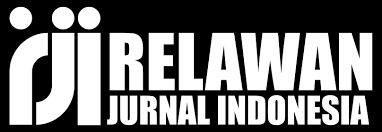The Moderating Impact of Religion and Women's Business on Household Economic Security: A Financial Planning Perspective
DOI:
https://doi.org/10.61722/jiem.v2i1.636Keywords:
Religious Moderation, women's business, Household Economic Security, Financial PlanningAbstract
The household economy in Indonesia plays a crucial role in the dynamics of the national economy. However, data from the Central Statistics Agency (BPS) in 2022 reveals that the average per capita household expenditure is still below the poverty line, reaching IDR 4,225,000 per month. This highlights a significant challenge in efforts to improve household welfare in Indonesia. This research provides policy suggestions to overcome these problems, including increasing access to education and skills, strengthening social protection programs, and supporting the development of small and medium enterprises (SMEs). Financial literacy, access to financial services, and the role of women in the economy are also important focuses in designing a comprehensive strategy. Collaboration between government, the private sector and non-governmental organizations is needed to realize effective policy implementation. Finally, the promotion of a green economy is proposed as a progressive step to create sustainable jobs and encourage inclusive economic growth. It is hoped that this research can provide a holistic view of household economic problems in Indonesia and provide direction for developing more effective and sustainable policies.
References
Chapnick, A. (2008). The golden age. International Journal, 64(1), 205–221. https://doi.org/10.1177/00207020090640011 8
Departemen Agama RI. 2012. Moderasi Islam. Jakarta: Lajnah Pentashihahn Mushaf AlQur’an.
E. Mulyasa. 2018. Manajemen pendidikan karakter. Jakarta: Bumi aksara
Evelina, L. W. (2015). Analisis Isu S (Suku) A (Agama) R (Ras) A (Antar Golongan) di Media Social Indonesia. Jurnal ULTIMA Comm, 7(1), 107–122. https://doi.org/10.31937/ultimacomm.v7i1.42 6 Firdaus, M. (2014). Eksistensi FKUB dalam Memelihara Kerukunan Umat Beragama di Indonesia. Kontekstualita, 29(1), 63–84.
Hatta, M. F. (2006). Keyonote Speaker pada Sarasehan Nasional Jaringan Kekerabatan Antropologi Indonesia. Jurnal Antropologi Sosial Budaya, 2(1), 1–48.
https://www.kemenkopmk.go.id/optimalisasi-peran-perempuan-dalam-pembangunan
Jailani, M. S. (2014). Teori Pendidikan Keluarga dan Tanggung Jawab Orang Tua dalam Pendidikan Anak Usia Dini. Nadwa: Jurnal Pendidikan Islam, 8(2), 245–260. https://doi.org/10.21580/nw.2014.8.2.580
Nugroho, H. (1997). Dekonstruksi Wacana SARA Negara dan Implikasinya Terhadap Kemajemukan Masyarakat Indonesia. Jurnal Ilmu Sosial Dan Ilmu Poltik, 1(2), 1–12.
Rianawati, R. (2014). Peran Ibu dalam Pendidikan Karakter Anak Usia Dini Menurut Pandangan Islam. Raheema, 1(1). https://doi.org/10.24260/raheema.v1i1.146
Riniti Rahayu, L., & Surya Wedra Lesmana, P. (2020). Potensi Peran Perempuan dalam Mewujudkan Moderasi Beragama di Indonesia. Pustaka : Jurnal Ilmu-Ilmu Budaya, 20(1), 31. https://doi.org/10.24843/pjiib.2020.v20.i01. p05
Samsidar, S. (2019). Peran ganda wanita dalam rumah tangga. Jurnal Studi Gender Dan Anak, 12(2), 655–663.
Surahman, B. (2019). Peran Ibu Terhadap Masa Depan Anak. Jurnal Hawa : Studi Pengarus Utamaan Gender Dan Anak, 1(2). https://doi.org/10.29300/hawapsga.v1i2.26 00
Zuhdi, S. (2019). Membincang Peran Ganda Perempuan Dalam Masyarakat Industri. Jurnal Jurisprudence, 8(2), 81–86. https://doi.org/10.23917/jurisprudence.v8i2 .7327
Downloads
Published
Issue
Section
License
Copyright (c) 2023 JURNAL ILMIAH EKONOMI DAN MANAJEMEN

This work is licensed under a Creative Commons Attribution-ShareAlike 4.0 International License.












